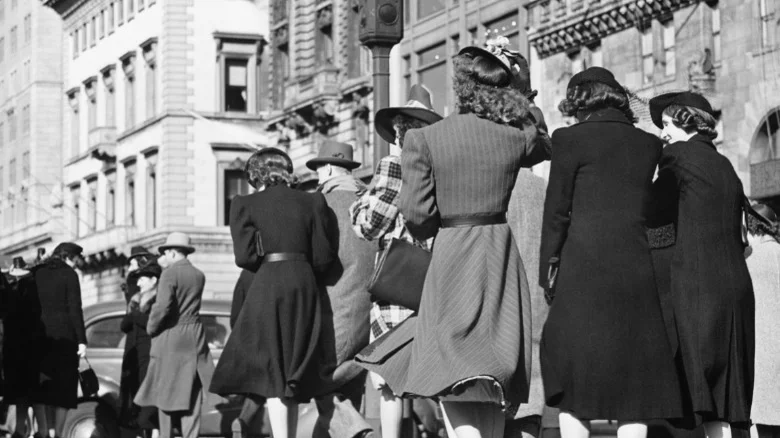
In 1940, eggs cost 33 cents per dozen, Harlan Sanders (not yet a Kentucky Colonel) introduced his Kentucky Fried Chicken, the first Dairy Queen opened, and M&Ms and York Peppermint Patties first hit the market.
Posted on 04/19/2025 6:47:12 AM PDT by Diana in Wisconsin
The humble egg is one of those foods that pops up just about everywhere. An egg can be cooked in dozens, if not hundreds, of different preparations, and just like any other commodity, the price has really fluctuated over the years.
Tracking down the retail price of a dozen Grade A eggs over the decades wasn't an easy task, as prices have varied from store to store over the years, and supermarkets haven't kept track of prices for decades on end. So in order to get an annual retail price that we could stand behind, we worked with the U.S. Department of Labor's Bureau of Labor Statistics, which provided documents from the Consumer Price Index with annual average prices for a dozen Grade A eggs dating back to 1890. As these are the government's figures, compiled by visiting businesses that sell eggs and collecting price quotes on a monthly basis (so going beyond just flipping through the prices in old supermarket circulars), these are as close to "official" prices as we're likely to find.
Egg prices have gone up and down over the past 80 years, but on the whole, a dozen eggs have gotten a lot less expensive than they used to be, once we adjust for inflation. So if you took any trips to the grocery store with a parent when you were a baby, read on to learn how much they would have paid for a dozen eggs each year between 1937 and 2005.

In 1940, eggs cost 33 cents per dozen, Harlan Sanders (not yet a Kentucky Colonel) introduced his Kentucky Fried Chicken, the first Dairy Queen opened, and M&Ms and York Peppermint Patties first hit the market.
Year-by-year listing at link.
Me, born in 1960:
A dozen eggs cost 57 cents the year JFK was inaugurated; culinary milestones that year included the founding of Hardee’s and Domino’s, the U.S. rollout of Granny Smith apples, and the introduction of Little Debbie Oatmeal Cream Pies.
You can live cheaply if you had a dozen eggs a day, with a little bit of this and that.
List stops at 2005.
We need a month by month for the last five years.
This week I got a dozen eggs for free. My neighbor gave them to me from his chickens that each produce an egg a day. Since it is just him & his girlfriend, that apparently can’t eat them all. 🤣
57 cents. Both sets of grandparents were living on farms, with chickens aplenty. Egg-sucking or chicken-killing dogs were not tolerated.
How about a chart instead?
No.
“Since it is just him & his girlfriend, that apparently can’t eat them all.”
I can eat 50 eggs.
Yesterday I bought a dozen large eggs for $4.49. This is down 50 cents from last week and down from $6.19 in January.
It was about a dollar when I came to this planet. I paid around $6 this week for a dozen eggs. Should really buy in quantity since I go through a dozen in 4 days.
Nobody can eat 50 eggs.
You’re 85?
In the mining camps in the late 1800’s eggs were $10 each. 😮
In 1940, a PFC got paid $54.00, or just under 164 dozen eggs a month.
Base for a PFC now is $2733 a month. Based on that, eggs should now cost $16.66 a dozen.
But can you afford 50 eggs? :-)
That’s all fine and well but how does that relate to a percentage of hourly wage in r 2025 dollars?
DA C 3
Disclaimer: Opinions posted on Free Republic are those of the individual posters and do not necessarily represent the opinion of Free Republic or its management. All materials posted herein are protected by copyright law and the exemption for fair use of copyrighted works.